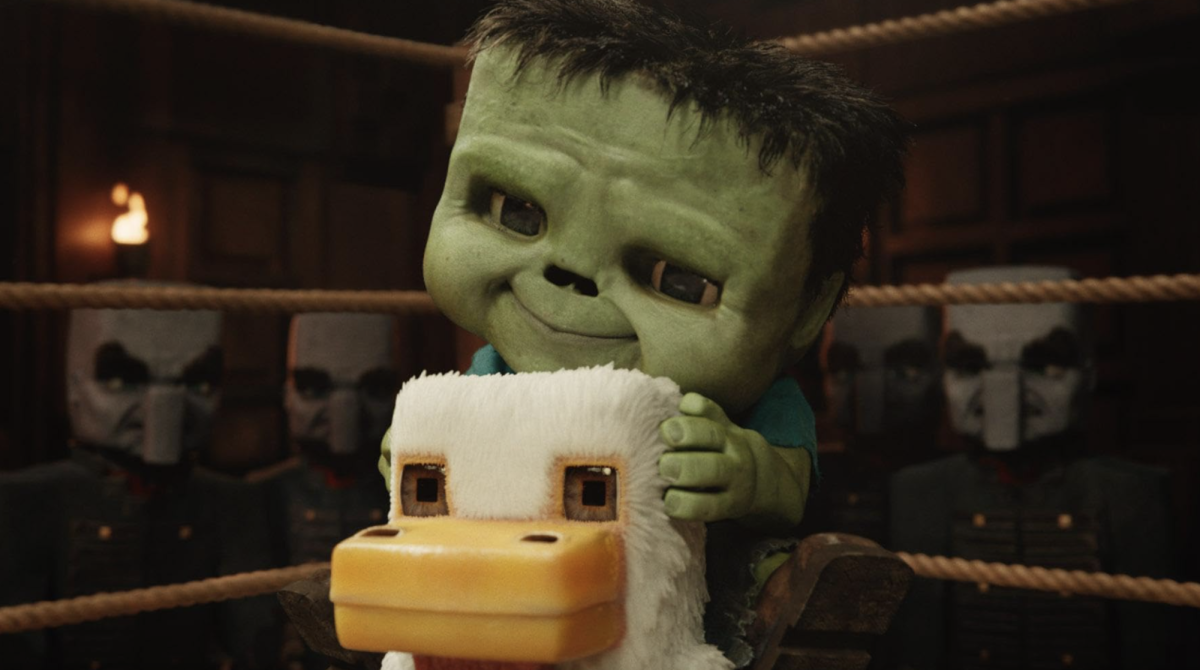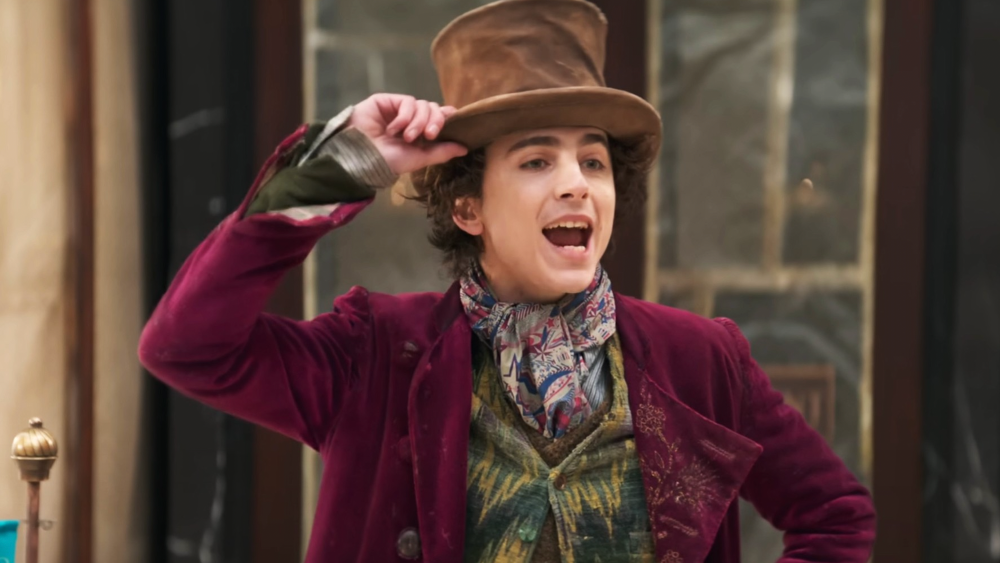“Wonka” is the prequel to the book and 1971 film “Willy Wonka and the Chocolate Factory.” It is directed and co-written by Paul King, a British director. Starring Timothee Chalamet as Willy Wonka and Hugh Grant as an Oompa Loompa, the movie follows Wonka as he chases his dream of sharing his chocolate with the world, inspired by his late mother, who originally introduced chocolate to him as a child.
Through Willy Wonka’s flashbacks, it is explained that his main motivation for wanting to make and sell chocolate is because of his late mother, who would first make chocolate for Wonka with a secret ingredient once a year when he was a child. His mother promised him that, once he was older, she would share her secret to delicious chocolate with him. With the promise of sharing once he sold his chocolate, Wonka chases the memory of his mother, selling his chocolate, hoping to one day learn his mother’s secret.
After obtaining the rights to Roald Dahl’s character Willy Wonka, Warner Bros. announced they were producing a new film based on the same material from “Charlie and the Chocolate Factory.” Since the film was still in early production, King announced that instead of creating another direct adaptation of the original story, he wanted to create an origin story of Willy Wonka and explore how the character started the titular chocolate factory.
The two previous adaptations of “Charlie and the Chocolate Factory” were soft musicals, featuring around 10 songs each. Similarly, Wonka further embodies the musical aspect, containing 11 songs in the soundtrack. Even though there are 11 songs, none of them particularly stood out as bad, but only a handful are memorable, such as “Oompa Loompa” and “Sweet Tooth.”
Timothee Chalamet was a good choice to star in the musical and did a surprisingly good job at portraying Willy Wonka, bringing a fresh take on the character while also replicating some of the mannerisms of Gene Wilder and Johnny Depp. One of the bigger traits of past portrayals that Chalamet missed, however, was the sociopath aspect of Willy Wonka.
In both the 1971 and 2005 depictions of the story, Willy Wonka was detached from reality and unsympathetic towards the people around him. Fully aware of how dangerous the chocolate factory is, Willy Wonka takes the golden ticket winners on a tour of the factory anyway, and he stands idly by while most of the children nearly get killed. This descent into madness could have been an interesting topic to explore throughout the course of the movie, but Paul King ultimately decided to lean away from this part of Willy Wonka’s character.
Overall, Wonka is a decent movie, but it missed some plot opportunities that could have been interesting to unravel. While the songs are not anything groundbreaking, Wonka would be entertaining for any fan of the musical genre. For anyone who is not receptive to musicals, Wonka would not be a good recommendation, as the characters break into song frequently throughout.














![[DEBATES] Prestigious colleges: value or hype?](https://www.mvviewer.org/wp-content/uploads/2024/12/buildings-1200x654.png)































![[OPINION] The dark origins of TikTok's looksmaxxing trend](https://www.mvviewer.org/wp-content/uploads/2024/02/Copy-of-Copy-of-Untitled-Design-1200x675.png)








